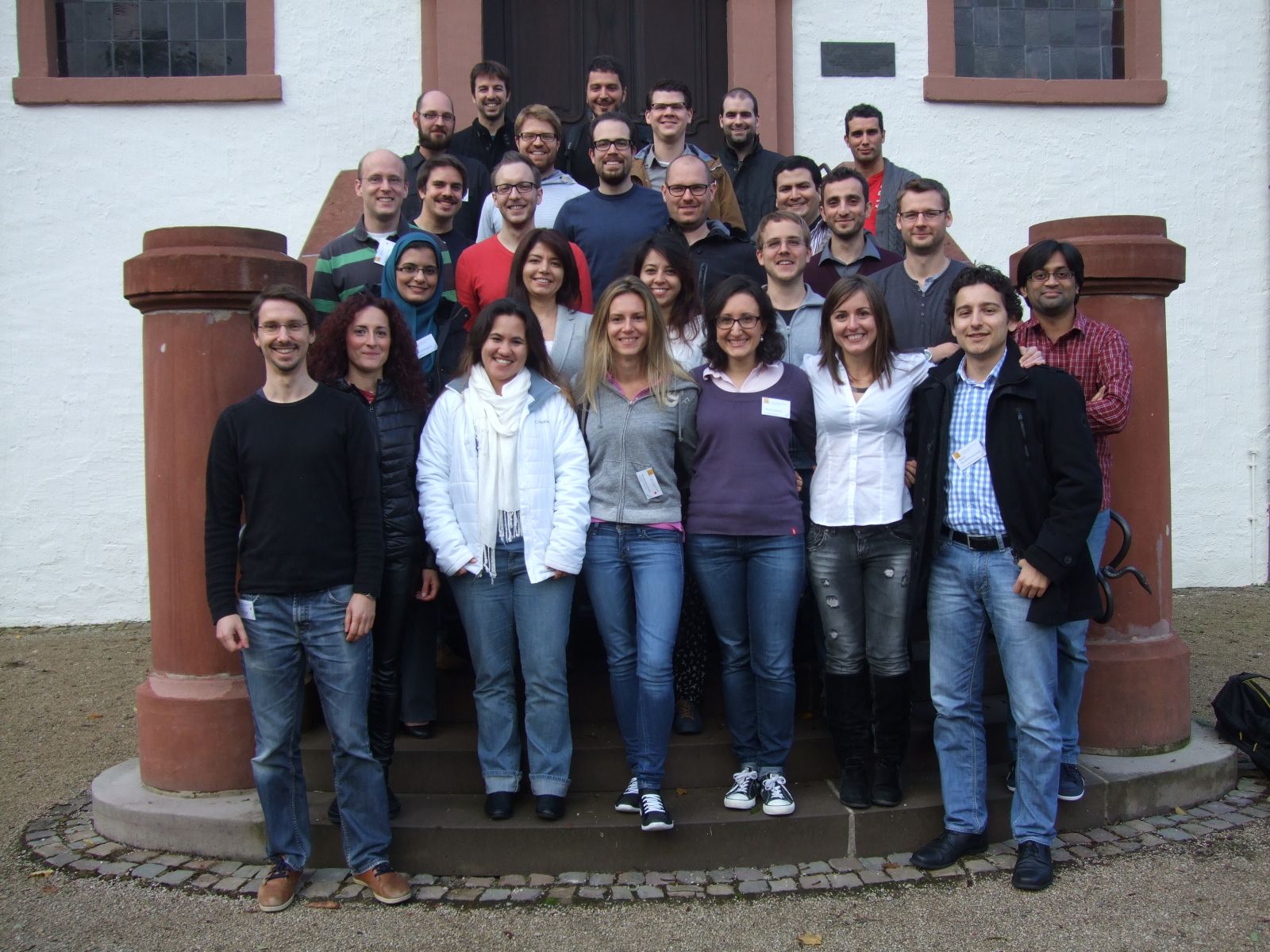Schloss Dagstuhl, October 19 – 24, 2014, GI-Dagstuhl Seminar 14433
Seminar page at the Dagstuhl website: http://www.dagstuhl.de/14433
Organizers
Alessandra Gorla (Universität des Saarlandes – Saarbrücken, DE)
Matthias Tichy (University of Göteborg, SE)
Thomas Vogel (Hasso-Plattner-Institut – Potsdam, DE)
 Photo by Schloss Dagstuhl - LZI GmbH
Photo by Schloss Dagstuhl - LZI GmbH
Documents
List of Participants
List of Talks
Program
Slides
Outcomes of the Seminar
Seminar Report
Scientific Papers
Motivation
Nowadays, software has become a key feature and driver for innovation of a wide range of products and services such as business applications, vehicles, or devices in various domains such as transportation, communication, energy, production, or health. Consequently, our daily lives highly depend on such software-intensive systems that therefore have to "become more versatile, flexible, resilient, dependable, energy-efficient, recoverable, customizable, configurable, and self-optimizing by adapting to changes that may occur in their operational contexts, environments and system requirements" [1]. This results in complex systems, which is even more stressed by integrating them to systems-of-systems or cyber-physical systems such as smart cities. Therefore, innovative ways of developing, deploying, maintaining, and evolving such software-intensive systems are required, which are major research challenges.
In this direction, one promising stream of software engineering research is self-adaptation, that is, systems that are able to automatically adjust their behavior and structure in response to changes in the environment or their own states and requirements. Engineering self-adaptive systems is an open research challenge, particularly, for software engineering since it is usually software that controls the self-adaptation.
Besides the notion of self-adaptive software systems, there are various other designations for such system in the literature, such as self-healing, self-optimizing, self-managing, self-*, or autonomic systems. All of them share basic characteristics with respect to runtime adaptation though they oftentimes focus on specific concerns such as runtime failures (self-healing) or performance (self-optimization).
The proposed GI-Dagstuhl seminar focuses on software engineering aspects of building self-adaptive systems cost-effectively and in a systematic and predictable manner. This includes typical software engineering disciplines such as requirements engineering, modeling, architecture, middleware, design, analysis, testing, validation, and verification as well as software evolution (including software maintenance). Thus, the theme of the seminar jointly addresses the different software engineering disciplines to tackle the challenge of engineering self-adaptive systems.
Aims & Scope
The main goals of the proposed GI-Dagstuhl seminar are twofold. First, the seminar should bring together young researchers from the research community of "Software Engineering for Adaptive and Self-Managing Systems" (SEAMS). In the scope of this community, a series of Dagstuhl seminars on "Software Engineering for Self-Adaptive Systems" (Seminars 13511, 10431, and 08031) have been organized while this GI-Dagstuhl seminar aims for young researchers to present their current research projects, to exchange experience and expertise, to discuss research challenges, and to develop ideas for future collaborations. Second, the proposed seminar should open the SEAMS community to young researchers from related areas, particularly, the SPP 1183 "Organic Computing", SFB 901 "On-The-Fly Computing", SFB 1053 "MAKI -- Multi-Mechanism Adaptation for the Future Internet", and SPP 1593 "Design For Future -- Managed Software Evolution". Thus, the seminar should foster interaction and collaboration among young researchers working on self-adaptive software and related areas.
References
- R. de Lemos, H. Giese, H. Müller, M. Shaw et al.: Software Engineering for Self-Adaptive Systems: A second Research Roadmap. In R. de Lemos, H. Giese, H. Müller, and M. Shaw, editors, Software Engineering for Self-Adaptive Systems, number 10431 in Dagstuhl Seminar Proceedings, Dagstuhl, Germany, 2011. Schloss Dagstuhl - Leibniz-Zentrum fuer Informatik, Germany.
Keywords:
- Software engineering
- Self-adaptive software
- Self-managing software
- Autonomic Computing
- Software evolution
Travel Information etc.
Travel information can be found on How to Get to Dagstuhl, and further information for participants of GI Dagstuhl seminars on Information for participants in events not organized by Dagstuhl.
A discussion board (now closed) has been set up to synchronize travelling plans of the participants.
Acknowledgment
We would like to thank the Gesellschaft for Informatik e.V. (GI, German Society for Informatics) and Schloss Dagstuhl for partially funding this seminar.
